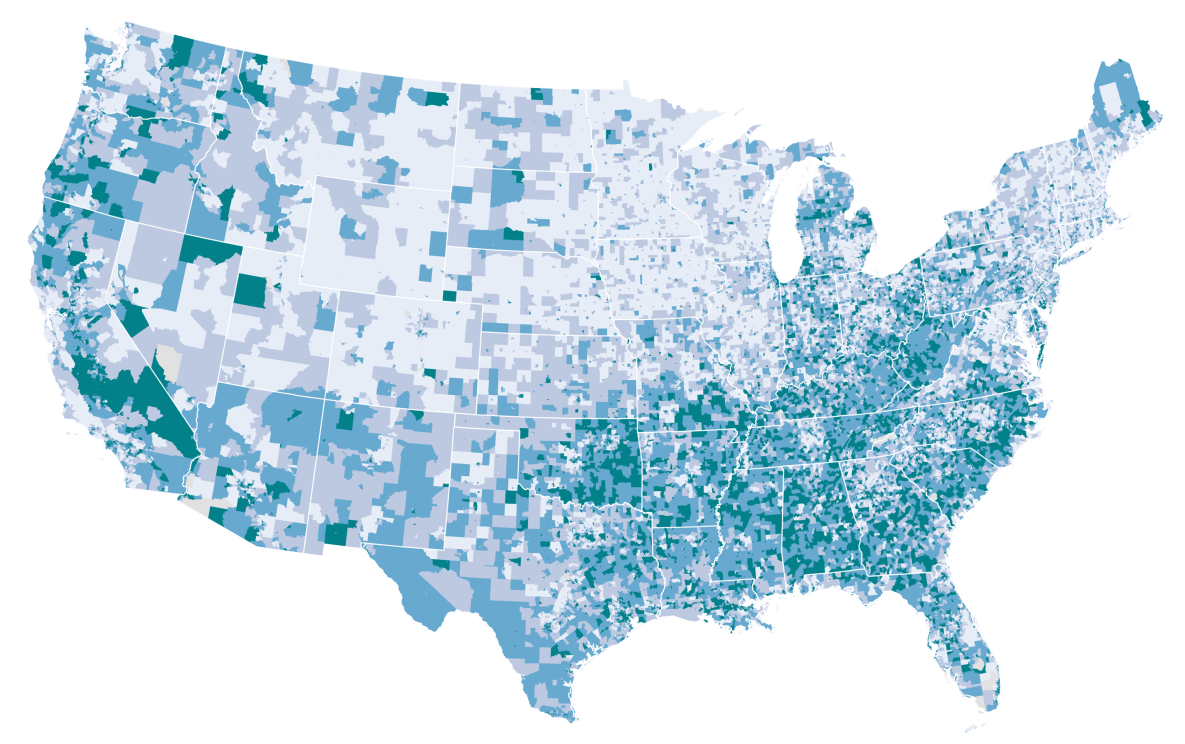Environmental Justice Index
Environmental justice is the fair treatment and meaningful involvement of all people, regardless of race, color, national origin, or income, to develop, implement, and enforce environmental laws, regulations, and policies. This goal will be achieved when everyone enjoys the same degree of protection from environmental and health hazards, and equal access to the decision-making process to live, learn, and work in a healthy environment.
The Environmental Justice Index uses data from the U.S. Census Bureau, the U.S. Environmental Protection Agency, the U.S. Mine Safety and Health Administration, and the U.S. Centers for Disease Control and Prevention to rank the cumulative impacts of environmental injustice on health for every census tract. Census tracts are subdivisions of counties for which the Census collects statistical data. The EJI ranks each tract on 36 environmental, social, and health factors and groups them into three overarching modules and ten different domains.
CDC/ATSDR is committed to engaging with communities, EJ advocates, public health partners, and academic subject matter experts as part of the development and improvement of this tool. Learn more about EJI and opportunities for community engagement.
